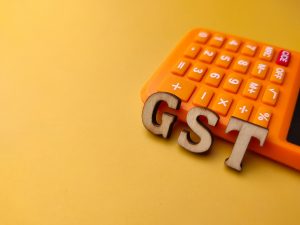
The Supreme Court has consolidated multiple pleas challenging the 28% GST on online gaming companies, ordering the transfer of 27 writ petitions to be heard together.
During a hearing led by a three-judge bench headed by Chief Justice D.Y. Chandrachud on Friday, the Supreme Court ordered the transfer of 27 writ petitions pending in 11 high courts across the country.
These petitions will now be tagged and heard collectively with a petition filed by Gameskraft and writs by EGF and Play Games24x7.
The top court also asked the Union government to file counter affidavits in all writ petitions within three weeks. The consolidated case is scheduled to be heard during the last week of April.
A final hearing in the matter is expected to end the prolonged tax overhang on the online gaming sector, and clarify conclusively if these are games of skill or chance, and if they would come under the ambit of betting and gambling.
Several online gaming companies including Games 24×7 and Head Digital Works have filed writ petitions with the Supreme Court contesting the imposition of GST.
The top had earlier refused to allow an interim stay on the tax notices to gaming companies.
In the Gameskraft matter, the Supreme Court had stayed the Karnataka High Court’s judgment quashing a GST intimation notice to the tune of ₹21,000 crore.
The issue originated in August when the GST Council amended the law to enforce 28% tax on the “full face value” of bets or entry amounts in online games. This was to become effective from October 2023.
The gaming companies argue that the 28% tax should be applicable only from 1 October, but the government contends that the revision clarified an existing law, and, thus, its demand for tax dues was not retrospective.
The companies are also insisting that recurring playing amounts would not come under actionable claims of tax.
During a previous hearing in the case, senior advocate Harish Salve, arguing on behalf of the gaming industry, objected to categorizing the prize pools, or the total operating value of an online game, as an ‘actionable claim’.
Salve contended that since the games are played between players, with the companies merely drawing a platform fee, even actionable claims should not factor into the GST demand since the platforms and the services only function as intermediaries.
Salve underlined that the tax claims on online gaming startups were multiple times that of the companies’ reported net revenues in the previous five financial years, and would push the nascent sector towards bankruptcy.
An actionable claim, to put it simply, is a claim made in a court against a sum of money that one party owes another. In online gaming, since prize pools and winnings are held in escrow accounts of gaming operators, the claim that a winner of a particular game has on the money held in escrow becomes an actionable claim under law.
While actionable claims were not applicable to online gaming until September, these were brought under the amended GST laws from 1 October.
Source: LiveMint


